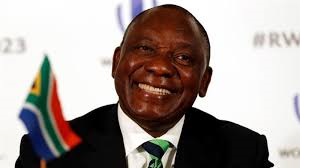South Africa’s CPI Falls to 7-year Low As Drought Eases
African News, Latest Headlines, South Africa, Southern Africa Wednesday, April 18th, 2018
(AFRICAN EXAMINER) – Statistics South Africa says the country’s consumer price inflation slowed to its lowest rate in seven years as the end of the worst drought in decades helped push down food prices.
Statistics South Africa’s data released on Wednesday in Johannesburg showed that headline annual consumer inflation slowed to 3.8 per cent in March from 4.0 per cent in February, the lowest figure since January, 2011.
The data also showed month-on-month inflation slowed to 0.4 per cent from 0.8 per cent.
The rand briefly rallied to a session high after the data.
But it quickly gave up those gains, with investors doubtful the unexpectedly low reading would be enough to persuade the South African Reserve Bank to cut interest rates more.
The central bank cut its main interest rate to 6.5 per cent in March but warned that inflation was at a low point in the current cycle and that it expected consumer prices to rise above 5 per cent in the medium term.
Food price inflation, a major concern for the Reserve Bank in the last two years due to drought, slowed to 3.5 per cent year-on-year having hit 11.8 per cent in December 2016.
Economists polled by Reuters had expected prices to quicken to 4.1 per cent on an annual basis and 0.6 per cent on a monthly basis.
They said that the 1 per cent increase in value-added tax came into effect on April 1 and would put upward pressure on prices.
Nedbank senior economist Nicky Weimar said that, “While the inflation numbers suggest there is a good argument for accommodative monetary policy, leaving rates unchanged to us would be relatively accommodative.”
Weimar said that along with VAT the biggest risk to inflation was the possibility of a large electricity tariff increase by power provider Eskom.
He said that Eskom’s effort to recover 67 billion rand ($6 billion) in higher than forecast operating costs would result to higher tariffs.
“What happens to Eskom’s electricity tariffs will be very important. It will be applying for fairly steep increases and that could certainly see inflation trend much higher,” Weimar said.
“We could see the decline in food price inflation start to moderate in the next few months, as base effects from the drought start to dissipate,” said Investec chief economist Annabel Bishop in a note. (Reuters/NAN)
Related Posts
Short URL: https://www.africanexaminer.com/?p=43438






















